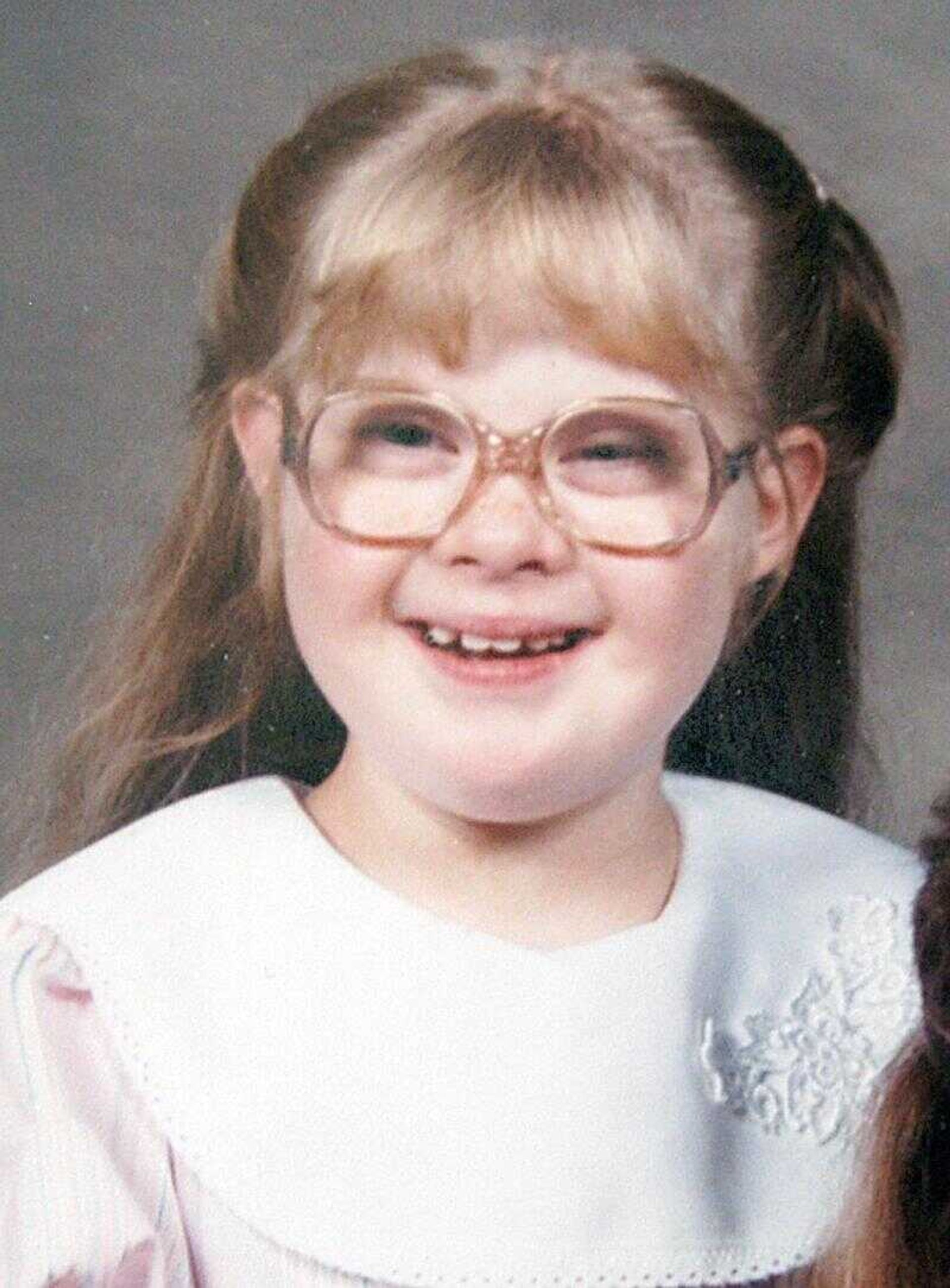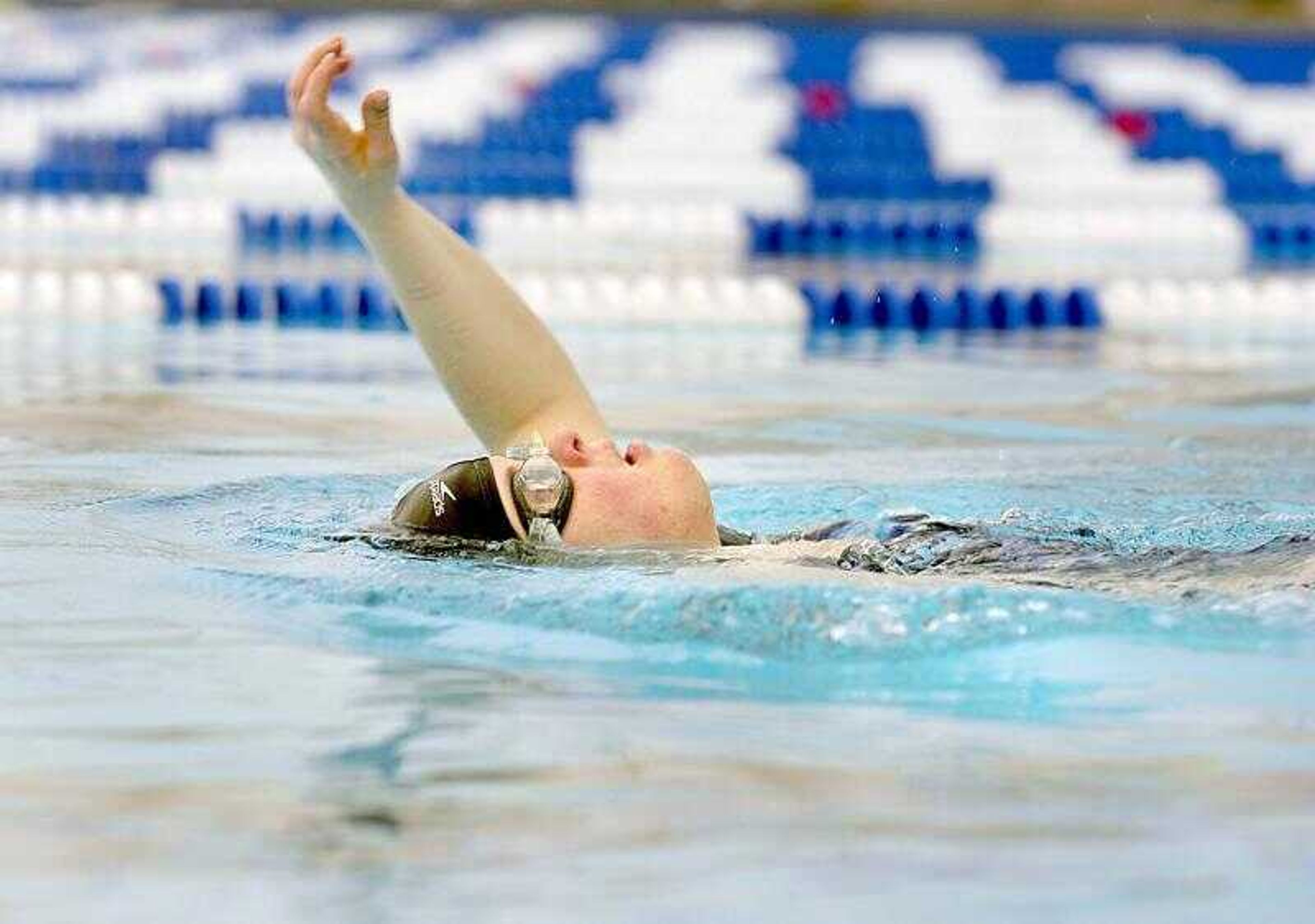Cindy's success
The little girl on the television screen was brave and determined. She smiled and waved from her hospital bed before surgery at St. Louis Children's Hospital. Her family sat nervously in the waiting room as television news cameras captured 9-year-old Cindy Young's story...
The little girl on the television screen was brave and determined. She smiled and waved from her hospital bed before surgery at St. Louis Children's Hospital. Her family sat nervously in the waiting room as television news cameras captured 9-year-old Cindy Young's story.
"Some say the best money in medicine should not be spent on children with handicaps like Down syndrome, but Cindy's parents disagree," a St. Louis television news reporter said.
"She's our child, and the fact that she has Down syndrome doesn't enter into it at all," Cindy's father, John Young, told television reporters. "We would do for her what we would do for anyone else."
Cindy's surgeon, Dr. Douglas Hanto, also believed Cindy deserved the best.
"In this day and age, we cheapen life by saying some people are more entitled for certain types of health care than others," Hanto said on television. "Although Cindy has Down syndrome, she is still a very happy girl who leads a relatively normal life, and I think she deserves the best we can give her."
After four hours of surgery, the St. Louis news anchor reporting from the hospital announced Cindy's surgery was a success.
Cindy's relieved parents, John and Rachael, were captured on camera smiling after the surgery, but they knew their daughter had a long road to recovery. Doctors told them they would know in a year whether Cindy's body had accepted the new kidney.

Last week, Cindy and her parents sat in the kitchen of their Cape Girardeau home and watched the 20-year-old news footage of Cindy's historic surgery. On Jan. 27, 1987, Cindy Young became the youngest child with Down syndrome in Missouri to receive a kidney transplant. The kidney came from her older sister, Becky Atkins.
Cindy, now 29, is the youngest child of Rachael and John Young.
While Cindy's Down syndrome made her parents take a different approach in raising her, Rachael said, "we tried to proceed as if she was normal and made allowances for the disabilities."
Cindy attended classes at the private University High School until it closed. Her parents moved her into the Cape Girardeau School District to begin third grade shortly after.
In 1986, when Cindy was 8 years old, an illness unrelated to Down syndrome blocked her kidneys' ability to filter waste. Doctors told John and Rachael her kidneys would fail unless something was done. A permanent catheter was implanted in her abdomen, and Cindy spent a year on dialysis.
John and Rachael took their daughter to St. Louis Children's Hospital, where Hanto encouraged the family to look into organ donation.
Before Cindy's surgery in 1987, a St. Louis television station interviewed Hanto, who is now the chief surgeon in the Division of Transplantation at Beth Israel Deaconess Medical Center in Boston.
"There have been cases when children with Down syndrome or other serious handicaps were allowed to die" because of debate over how far care for mentally or physically handicapped children should go, he said in the interview.
John and Rachael said they would never allow that to happen.
All of the Young family members -- with the exception of Atkins, who was pregnant at the time -- were tested to determine whether any of them were an exact match for Cindy. None was. So her sister decided to get tested and was a perfect match. Doctors told the family that Cindy and Atkins were like twins, only 24 years apart.
"I thought for sure it could be me," Rachael said. "I was heartbroken when it turned out to be one of the siblings."
Cindy was released from the hospital six days after surgery. Because Cindy and her sister were a perfect match, doctors estimated only a 10 to 15 percent chance of Cindy's body rejecting the kidney.
"They told us if the kidney lasted five years it would be considered a success," John said.
Twenty years later, doctors continue to monitor Cindy. She has lab work done locally once a month and travels to Barnes Jewish Hospital in St. Louis for a checkup once a year.
"The doctors say everything is going good, and they don't see why it won't continue," John said.
The family attributes part of the success with the kidney transplant to Cindy's love for swimming.
She has loved the water since she was 6 months old. She swam on the local Gators swim team for six years during junior and senior high school and now trains weekly on her own for the state's Special Olympics swim meet held once a year.
"I really like to swim," Cindy said as she displayed her collection of gold and silver medals from the Special Olympics last week. The butterfly is her favorite stroke.
Cindy works five days a week at VIP Industries and has speech therapy several times a week. She's also the aunt of 17 nieces and nephews.
Atkins, the kidney donor, currently works as an engineer in India.
Both John and Rachael feel blessed to have a child like Cindy. When she was born, a local doctor recommended the family place her in an institution. Rachael was questioned about her abilities to raise a child with Down syndrome.
"I was asked if I even wanted to take this baby home when she was born," she said. "But we are so glad we have Cindy. She is our joy."
jfreeze@semissourian.com
335-6611, extension 246
Connect with the Southeast Missourian Newsroom:
For corrections to this story or other insights for the editor, click here. To submit a letter to the editor, click here. To learn about the Southeast Missourian’s AI Policy, click here.








